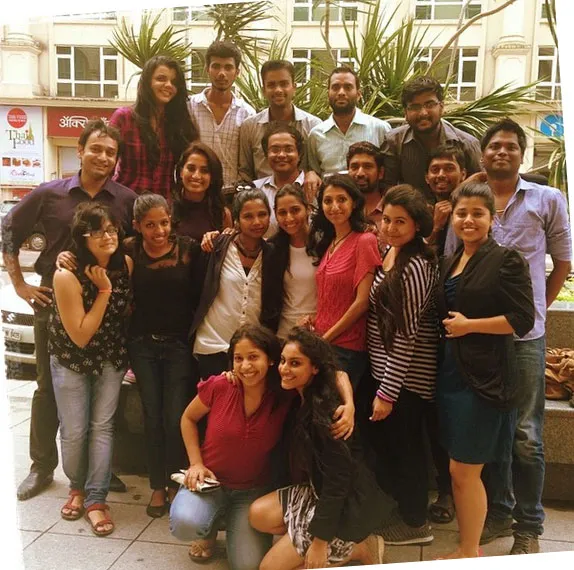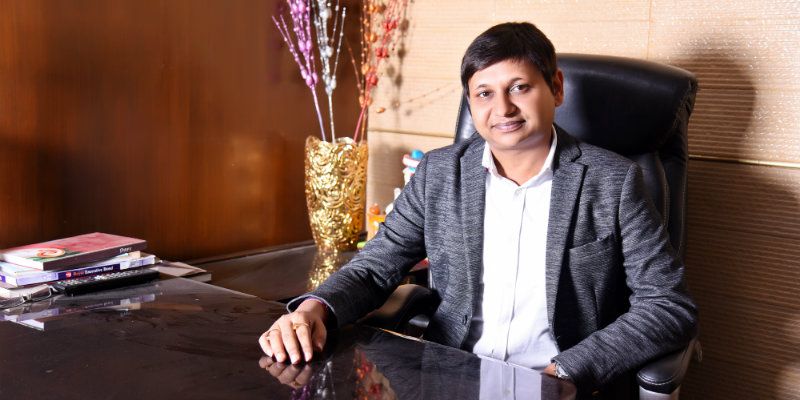Is it the ‘right place and the right time’ for Fab Bag and subscription commerce in India?
Discovery commerce (or subscription commerce) is a new option for a consumer to purchase a subscription to a set of products they can try. It is a business model by which consumers subscribe to periodically receive a product or a box of new products or samples. One of the three types of subscription commerce is sampling models which allow subscribers to receive new products and samples. They are found mainly in beauty and food sector. Products and samples are delivered in "surprise boxes". In this case, subscription commerce companies have two customers. Subscribers who want to discover new products and brands who want to promote their new products.
Globally, BirchBox and JolieBox are some of the recent successes in subscription commerce. Mumbai-based beauty & grooming discovery service, Fab Bag (earlier known as Vellvette), is one such example in India, where you can sign up to receive a monthly bag of high-quality, curated products from top global brands, at home.
Founded in 2012 by Vineeta Singh, an IIT-M and IIM-Ahmedabad alumnus and Kaushik Mukherjee, an alumnus of BITS Pilani and IIM-Ahmedabad, Fab Bag turned profitable earlier this year and has recently closed a funding round of less than half a million dollars from the angel investor Rajan Anandan, Nakul Gupta and the India Quotient Fund.
YourStory got in touch with the founders and investors to know the dynamics of subscription commerce in India and how Fab Bag is pioneering this model in India.

And that’s how Fab Bag came into existence
Vineeta was running a profitable HR-services startup called QVerify when she chanced upon the ‘discovery commerce’ model. This concept was first popularized in the US/European markets and the idea of making ‘expensive or hard-to-find niche’ brands more accessible to prospective buyers appealed to both Vineeta and Kaushik who had earlier started a Rediff-funded insurance portal called Fintact.com.
Kaushik says,
With the newer global brands entering a fast-growing Indian beauty market,we felt we were in a rare ‘right-place-at-the-right-time’ situation that had to be taken to the next step. As a result, Fab Bag was incorporated in the year 2012.

What’s driving subscription commerce in India
According to Kaushik and Vineeta the subscription commerce model can be significantly tweaked for the Indian audience. Kaushik adds,
While discovery is important, our members also view their monthly bags for consumption and hence 'value-for-money' becomes a huge driver especially in the early days while driving adoption of a new service. Unlike similar global offerings, our monthly bags have at least one full size product/make up product so that the total value of the kit is maximized.
The business model has been adopted to other verticals as well in other countries but the Fab Bag team is convinced that beauty is a category where education/sampling drives sales like no other. They are also counting on the fact that organized sampling & post-trial-purchase behavior to significantly increase in the years to come.
Profitability and $1 million turnover
Fab Bag offers a competitive price-point (as low as 399/- p.m.) and ships both full-size & travel-sized products worth more than thrice that value to the subscribers. The company is seeing great traction since its launch owing to the viral nature of the product. There are repeated patterns of referral acquisitions where office colleagues, college friends place orders together and rope in a few more.
Fab Bag crossed an annual turnover of $1M a while back and turned profitable earlier this year. Kaushik mentions,
Till date, we have shipped beauty bags to 40,000+ subscribers and have over 100,000+ registered members online.
Fab Bag has a 22 member team at the moment and is evenly split between sourcing, tech, support & operations.

Why subscription commerce is an attractive business
For Nakul Gupta, (investor in Fab Bag) subscription looks like a very logical transition in eCommerce, having already proved that there is a huge demand outside India. He says,
There are already about half a dozen ventures offering a range of products including cosmetics, educational toys and food on a monthly subscription basis.
He believes that better demand prediction, recurring monthly sales, and a steady stream cash flow make subscription model an attractive business for an entrepreneur and an investor. Customers see great value in it because for a smaller ticket size they can experience international brands. He adds,
Beauty discovery in tier 2/3 cities through subscription-commerce is a great idea to invest in by itself.
Investing in Fab Bag

Nakul bets on a great founding team with a solid background, a clean structure and governance, and most importantly a product that solves a real problem, ability to monetise and scale quickly. The major reasons for putting faith in Fab Bag for Nakul are -
- The company has been successfully validated in the market with its subscriber base growing 4x in less than 12 months.
- It’s a disruptive model which can address problems that premium brands face (like increasing reach and targeting the right customer quickly) and problems that customers face (like limited access to premium brands beyond metros, high cost and knowledge about product suitability).
- The cost of customer acquisition goes down substantially for e-commerce beauty platforms once you have customers hooked on the subscription model. It is a sustainable source of competitive advantage which Fab Bag has already built by being the first mover in its space.
- Great founding team of serial entrepreneurs who are passionate about the internet and beauty space, and a great set of investors - already backed by India Quotient and Rajan Anandan. The team has tied up with 100+ brands, curating products, marketing and customer satisfaction.
- Great exit options: In just three-and-a-half years, Birchbox has grown to 800,000 subscribers, which equates to $96 million in annual sale with a valuation of more than $500 million. Imagine what Fab Bag can do in India !
Fab Bag, women, online shopping and the future
The number of women shopping online in India is expected to shoot past 80 million by 2020. Kaushik says,
We see this as a huge opportunity to create a service that reaches out to millions of women in the form of a monthly parcel. We will leverage our existing subscription commerce business to grow our overall beauty presence/sales in the short term and might consider other adjacencies sometime in the future.
But is that it?
All said and done, subscription commerce has been written off earlier in India and this might be the much required silver lining for the industry. And it's going to take many more stories like Fab Bag to consider the taking off of this model in India. There are other players like enchantress.com, myenvybox.com and Bakebox which will also play an important role in deciding the shape discovery commerce will take up.
What do you think of subscription commerce in India? Let us know in your comments below.











